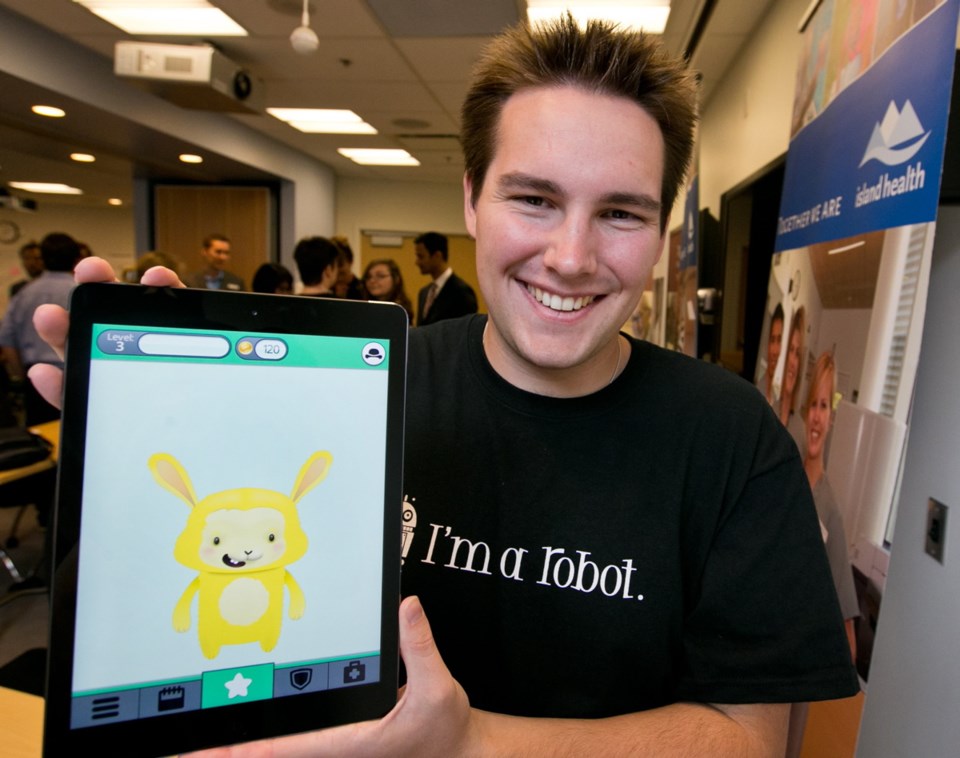Island Health unveiled a new interactive mobile app in Victoria on Thursday, touting it as a groundbreaking creation to help youth around the world improve their mental health.
Using elements inspired by video games, BoosterBuddy leads users on a daily quest to wake up an interactive buddy — represented by a fox, rabbit or raccoon — and register whether they are feeling good, not great, struggling, or in crisis.
Depending on the answer, the user’s next task may be to simply get out of bed and brush his or her teeth, meet with a friend for coffee, or call a crisis line for help.
The app, which is targeted at users in their teens and 20s, is the brainchild of Island Health’s Lauren Fox, an occupational therapist, and Drew Barnes, a program co-ordinator with the health authority’s mental health and substance use services.
“As far as we are aware, this is the only gamified app for psychosis, anxiety and depression in Canada,” Fox said. “It uses the motivational strategies that appear in video games to actually engage people with real-life activities.”
After years of communicating with youth through texts and emails, the creators realized that mobile devices were a convenient way to engage with youth experiencing psychosis, anxiety or possible depression.
“They can access it whenever they want to, regardless if they are in a rural area or it’s the middle of the night — they will have this toolbox in their back pocket,” Fox said.
One in five young people experience mental-health challenges, according to Island Health. The app is not designed to replace the role of a doctor or mental-health clinician, but as an added support and preventative tool, Barnes said.
The game’s prompts, tasks and daily questions are designed to help users improve their coping skills, motivation, organization (in particular, tracking appointments and medication), self-care routines, self-awareness, socialization skills, crisis prevention and planning.
“Our youth design team was not a token part of this process. They were absolutely critical to every step,” Fox said.
“They wanted something that would give them a sense of hope and encouragement, something that would provide markers of progress on their journey toward wellness.”
The creators figured that adding a game component to the app would help keep youth engaged longer. They hope BoosterBuddy will have a life of two years — enough time for users to have gained considerable coping skills and awareness.
Youth involved in the app’s design were on hand Thursday to demonstrate the full suite of resources provided to users.
BoosterBuddy’s library can be personalized, which ended up being one of the app’s most appreciated aspects, Fox said.
That’s true for Jason Tate, 20, who said having a library of coping strategies at your fingertips is a useful resource.
Tate even has a favourite motivational phrase: “So long as I’m alive, anything is possible.”
BoosterBuddy was funded by Coast Capital Savings through a $150,000 donation to the Victoria Hospitals Foundation’s Building Care Together campaign.
The app will be shared with health jurisdictions across the country and is available as a free download for Apple or Android mobile devices.
For more information or to download the app, go to viha.ca/boosterbuddy.



